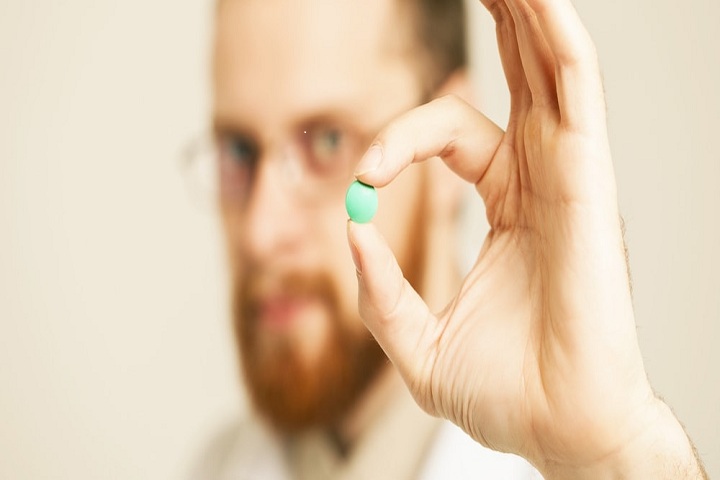Testosterone, a hormone that plays a crucial role in a man’s health, can significantly impact various aspects of life, including energy levels, mood, and sexual function. Research indicates that low testosterone (Low-T) can affect men in various ways. Studies have shown that individuals with low testosterone may experience fatigue, diminished motivation, and reduced muscle mass. Additionally, hormonal imbalances are linked to mood swings, irritability, and difficulties concentrating. Furthermore, low testosterone can contribute to a decline in libido, and erectile dysfunction, and even impact bone density, increasing the risk of fractures. If you’ve noticed changes in your partner’s behavior or physical well-being, these signs may be indicative of Low-T. In this blog post, we’ll explore 10 common signs that your partner may have low testosterone and discuss how you can address the issue together. While it’s not an easy subject to bring up, addressing these issues early on may allow you to live a healthier life together.
Fatigue and Low Energy:
One of the primary indicators of low testosterone is persistent fatigue and a noticeable decrease in energy levels. If your partner seems lethargic or lacks the enthusiasm they once had, it could be a sign of Low-T.
Changes in Mood:
Testosterone levels can influence mood and emotional well-being. If your partner is experiencing mood swings, irritability, or increased stress without an apparent cause, it may be related to hormonal imbalance.
Decreased Libido:
A significant symptom of low testosterone is a decline in sexual desire and performance. If your partner is experiencing a reduced interest in intimacy, it’s essential to address this issue openly and supportively.
Weight Gain and Loss of Muscle Mass:
Low-T can contribute to changes in body composition, leading to increased body fat and decreased muscle mass. If your partner has noticed changes in their physique, it’s worth considering the role of testosterone.
Difficulty Concentrating:
Cognitive functions, including focus and concentration, can be affected by low testosterone levels. If your partner is struggling with mental clarity or experiencing difficulty concentrating, hormonal imbalances might be a contributing factor.
Hair Loss:
Testosterone plays a role in hair growth, and low levels can contribute to hair loss. If your partner is noticing significant changes in hair thickness or experiencing male-pattern baldness, it could be related to Low-T.
Sleep Disturbances:
Low testosterone can interfere with sleep patterns, leading to insomnia or other sleep disturbances. If your partner is having trouble getting a good night’s sleep, it’s worth exploring the possibility of hormonal imbalances.
Decreased Bone Density:
Testosterone is essential for maintaining bone density. If your partner is experiencing unexplained bone pain or has been diagnosed with osteoporosis, it may be linked to low testosterone levels.
Reduced Exercise Tolerance:
A decline in physical performance and exercise tolerance can be attributed to low testosterone. If your partner has noticed a decrease in strength or endurance, it’s essential to consider hormonal factors.
Difficulty Achieving or Maintaining Erections:
Erectile dysfunction is a common symptom of low testosterone. If your partner is experiencing difficulties in achieving or maintaining erections, addressing the hormonal aspect is crucial for a healthy relationship.
How to Address the Issue:
Encourage Open Communication:
Foster a safe and non-judgmental environment for your partner to share their concerns. Open communication is crucial for addressing sensitive issues like hormonal imbalances.
Seek Professional Advice:
Encourage your partner to consult with a healthcare professional, preferably a specialist in hormonal health. Testing testosterone levels and discussing potential treatment options can be the first step toward improvement.
Explore Lifestyle Changes:
Suggest and support positive lifestyle changes, such as regular exercise, a balanced diet, and stress management, which can positively impact testosterone levels.
Consider Hormone Replacement Therapy (HRT):
If recommended by a healthcare professional, explore the possibility of hormone replacement therapy as a treatment option. HRT can help restore testosterone levels and alleviate symptoms. Hormone Replacement Therapy (HRT) for men involves supplementing or replacing testosterone to address low testosterone levels. There are several types of HRT, each tailored to individual needs and preferences. Testosterone injections, administered intramuscularly, provide a controlled and consistent release. Transdermal patches, gels, or creams offer topical application, allowing for absorption through the skin. Testosterone pellets, small subcutaneous implants, release a steady hormone dose over several months. Oral testosterone is less common due to potential liver strain. The choice of HRT depends on factors like patient preference, lifestyle, and the severity of testosterone deficiency, with healthcare professionals guiding individuals to the most suitable option.
Be Patient and Supportive:
Hormonal imbalances can take time to address. Be patient with your partner and offer emotional support throughout the process.
Recognizing the signs of low testosterone in your partner is the first step toward addressing the issue and restoring their overall well-being. By encouraging open communication, seeking professional advice, and supporting positive lifestyle changes, you can work together to navigate the challenges associated with Low-T and strengthen your relationship. Remember, seeking medical guidance is crucial for an accurate diagnosis and appropriate treatment.






